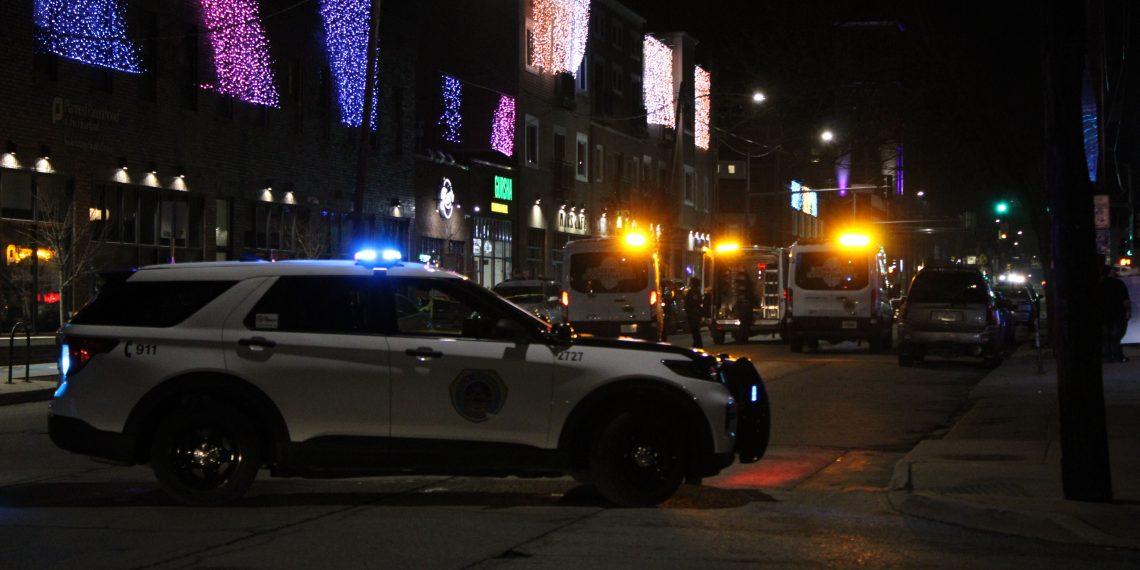“While most college campuses feel safe, and usually are safe, [it is important to understand] that crime can happen anywhere.”
Those words were spoken by Blaine Eckles, Dean of Students at the University of Idaho. He learned that the hard way. With his campus reeling after the November murder of four students – Ethan Chapin, Kaylee Goncalves, Xana Kernodle and Madison Mogen – Eckles has been trying to support students as best as possible.
“I’m telling them to lean into their emotions,” Eckles said. “Don’t deny them, don’t shove them away. They’re real.”
Violence is becoming more common on college campuses. Idaho’s murders are just one case.
A shooting at Michigan State University on Feb. 13 left three dead and five injured. The Nov. 13, 2022, incident on a University of Virginia bus full of students returning from a field trip resulted in three dead and two injured. More recently, on March 19, 2023, multiple people were shot in a hookah bar next to Temple University.
All that violence has put universities on high alert. At Drake University safety measures are always evolving. Students have Public Safety’s number on their student IDs, and a public safety officer and Des Moines Police officer patrol campus Thursday through Sunday evenings from 8 p.m. to 4 a.m. Additionally, the university employs 65 Des Moines police officers.
Bulldog Alerts – which consist of a text, email and phone call that go out simultaneously when there is an imminent threat – are also utilized as a way to keep the campus informed.
Scott Law, the head of Public Safety at Drake, has been with the university for 10 years. Previously an inspector with the New York State University Police, Law has had a lot of practice in keeping people safe.
“The issue of safety on campus is always one that we have to continually reevaluate based off of what’s going on at a national level,” Law said. “One of the changes we made last year as a result of [an intruder] is now an officer spends his evenings Tuesday through Saturday – all he does is go from the library to the residence halls and he just constantly walks. His whole job is to be a deterrent.”
While the university has made visible changes, some students believe more could be done. Ryley Covington, a first-year student at Drake, said she thinks the campus could benefit from something like self-defense classes at the Knapp Center.
Since the incidents, Idaho and Michigan have updated their safety practices. The MSU Alert System and Idaho’s Vandal Alert system were both utilized during these events to notify students of what was going on. But Idaho has now added additional security officers and cameras on campus, in addition to issuing a Birdie Personal Alarm to all students. When activated, this alarm creates a strobe light and a loud siren.
Michigan State announced it would improve building access, adding new locking systems to 1,300 classrooms. And while there are already 2,000 cameras on campus, the university stated it wants to add more.
Sgt. Paul Parizek, Public Information Officer for the Des Moines Police, said a college campus is often much like a city within a city, so the basic safety principles that work off-campus will help on-campus.
“The majority of homicides in Des Moines are committed by people known to the victim, oftentimes intimately,” Parizek said. “That is a huge obstacle when it comes to the police having much influence in preventing those crimes.”
Because there are still details coming out about the motive behind the Idaho murders, it is difficult to determine how it could have been prevented.
“Staying safe in those circumstances isn’t as simple as saying ‘pick your friends wisely,’” Parizek said. “There are wolves in sheep’s clothing, and we encourage young adults to trust their instincts. If someone or some situation doesn’t ‘feel’ right, it’s very likely it isn’t.”
With the rise of school shootings and national controversy over weapons, it is hard to say what the future will look like.
“You know, I heard a quote today. It said, ‘I learned what monsters look like years ago, and they look like people,’” Eckles said. “So you can never really tell who’s looking to take advantage of somebody, but there are people out there looking to do that.”







